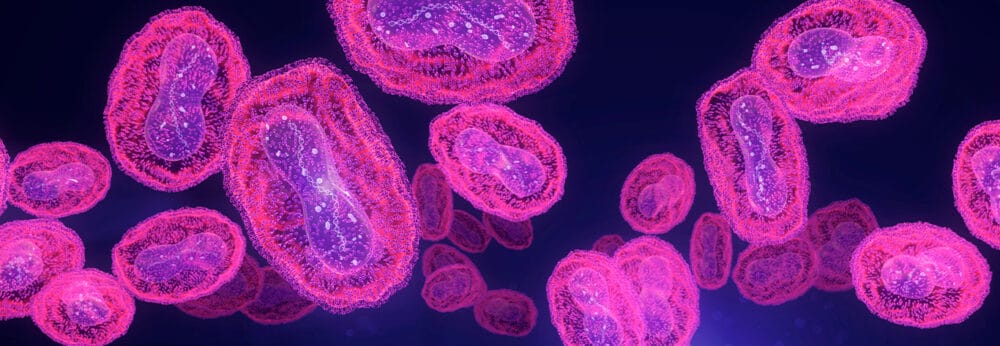Posted
13th July 2018
Research
An Irish study has examined whether daily bathing of patients using chlorhexidine results in a “halo” effect, in reducing environmental contamination. The study found that contamination of surfaces with VRE and ESBL Enterobacteriaceae (ESBL-E) in the near-patient environment was significantly lower when chlorhexidine bathing was in operation.

The study was performed in a 12-bed mixed speciality ICU over 20 months including 157 patients, during which daily chlorhexidine bathing was introduced. Each occupied bed was sampled twice weekly for a range of antibiotic-resistant bacteria. 9.4% of 745 surfaces sampled prior to the introduction of chlorhexidine were contaminated with VRE or ESBL-E vs. 5.0% of 958 surfaces samples after (p<0.001). There was a stark and significant reduction in contamination with VRE or ESBL-E from hand-wash basins: before the introduction of chlorhexidine, 10% of hand-wash basins were contaminated (!), which fell to <2% after chlorhexidine was introduced.
The study evaluated a number of potentially confounding variables: hand hygiene compliance remained more or less the same, and bed occupancy and antibiotic usage increased. It is impressive that a reduction in contamination was observed despite increases in bed occupancy and antibiotic consumption, which have been shown to increase the risk of HCAI. The team even evaluated whether the ambient mean temperature differed between the two periods (it did not).
Although the study was performed in a single centre and no randomisation was involved, it was extraordinarily well controlled for the impact of potentially confounding variables. This study illustrates the “halo” effect of chlorhexidine daily bathing in reducing environmental contamination. This reduction in environmental contamination is likely to be a contributing factor to the improvement in clinical outcomes associated with chlorhexidine daily bathing.
SHARE THIS ARTICLE
Tags
Latest News
Celebrating 20 Years of GAMA Healthcare: Our Story
This month, GAMA Healthcare celebrates 20 years of helping prevent…
Norovirus: Understanding its transmission and prevention in the UK
Introduction Norovirus is recognised as the leading cause of viral gastroenteritis…
Clean Between to Reduce Healthcare-Associated Infections
Healthcare-associated infections (HAIs) are a significant concern for healthcare facilities…
Mpox: emergence of a new threat
A new threat related to mpox is emerging, in the…




